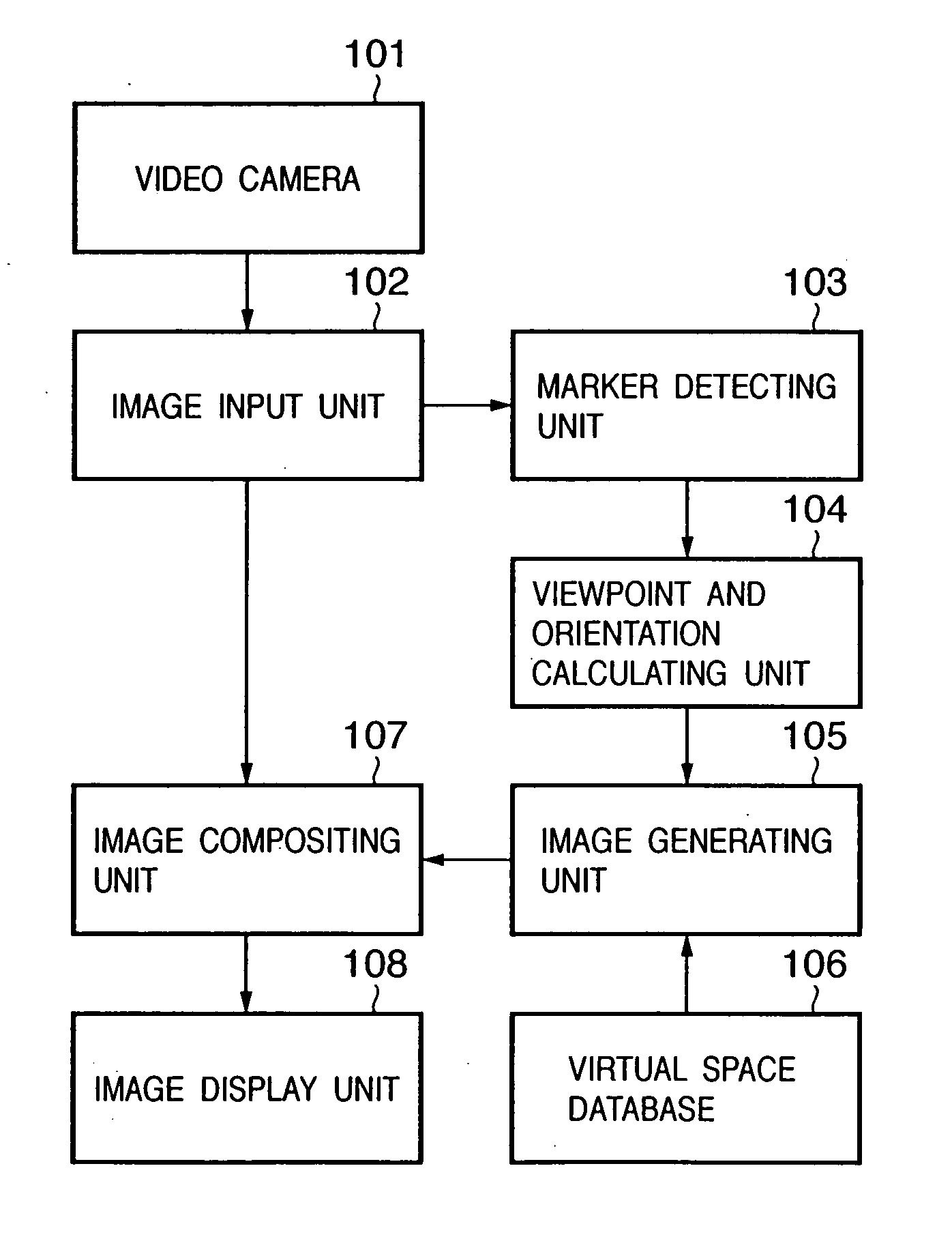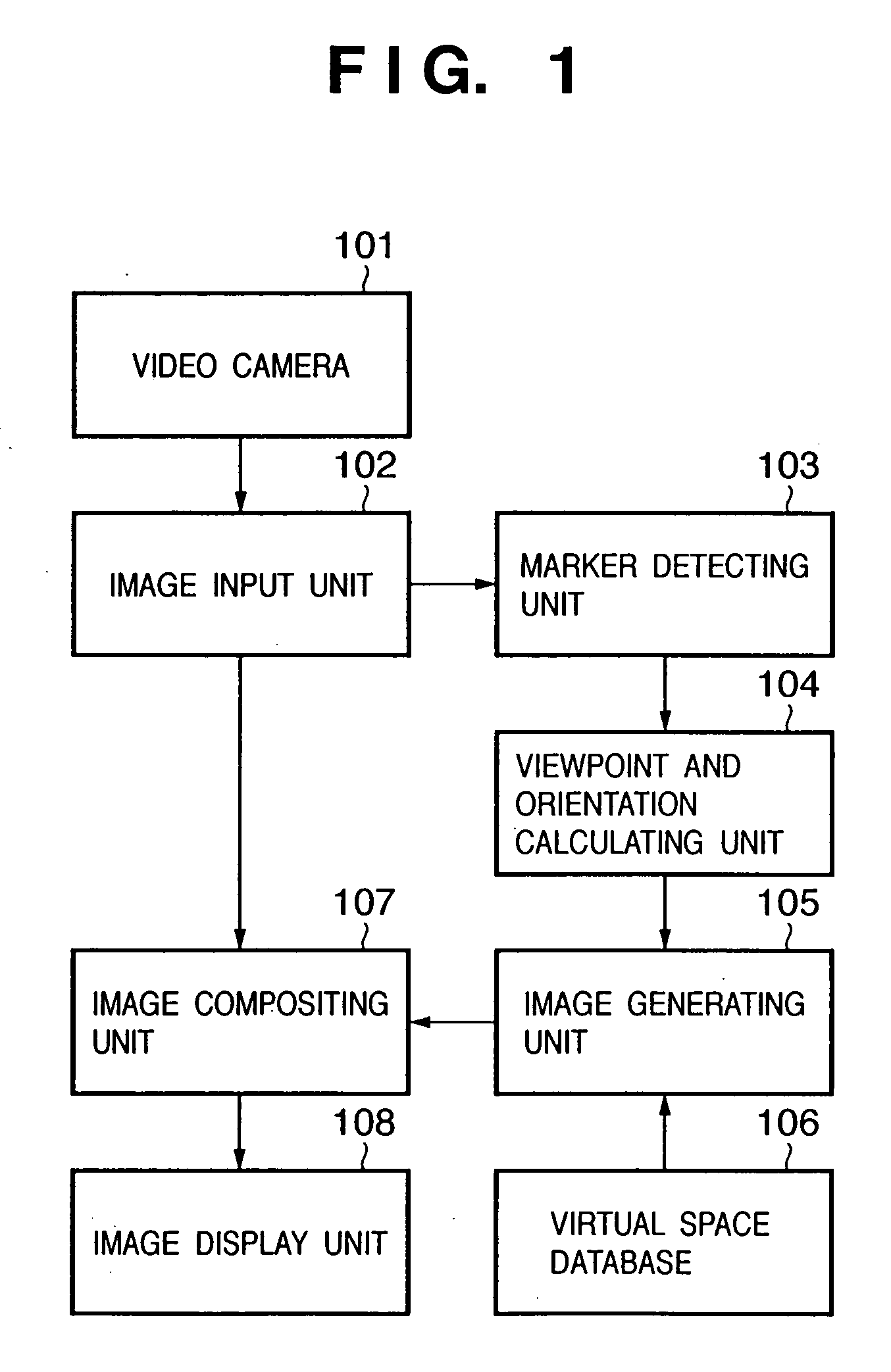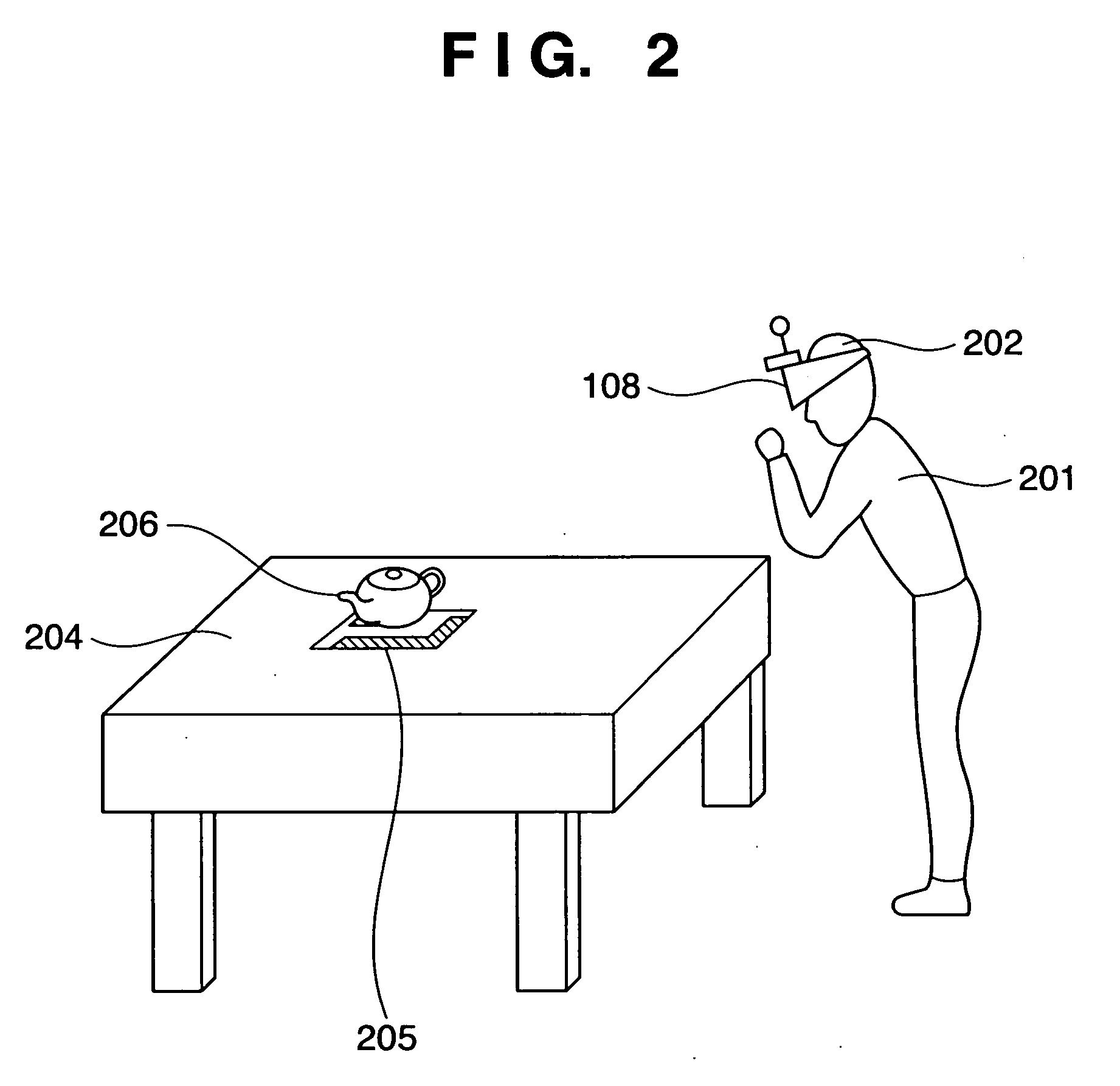Image compositing method and apparatus
a compositing method and image technology, applied in the field of image compositing technique, can solve the problems of limiting the range of motion of the viewer, the difficulty of arranging the sensors, and the limited range of sensors available to measure the effect of the imag
- Summary
- Abstract
- Description
- Claims
- Application Information
AI Technical Summary
Benefits of technology
Problems solved by technology
Method used
Image
Examples
first embodiment
[0032] An example of an image compositing apparatus according to a first embodiment acquires positional information about sensors based on markers attached to the sensors, superimposes measurable ranges of the sensors on the given positions using three-dimensional CG model data, and thereby visualizes the measurable ranges of the sensors. Incidentally, the three-dimensional CG model data used to visualize the measurable ranges may be based on either sensor specifications or experience. Besides, there are no particular limits on a display method of the model data, and the model data may be either outputted as they are or outputted with their degree of transparency specified.
(Configuration of the Image Compositing Apparatus)
[0033]FIG. 1 is a block diagram showing a configuration example of the image compositing apparatus according to this embodiment. FIG. 2 is a diagram schematically showing a concrete equipment configuration and a sensation of mixed reality experienced by an obser...
second embodiment
[0121] An image compositing apparatus according to a second embodiment involves installing a position and orientation sensor, acquiring position and orientation information in a global coordinate system on the head of the observer based on measurement values from the actually installed position and orientation sensor, superimposing three-dimensional CG model data (prepared in advance) which represent the sensor's measurable range defined in the global coordinate system on an actually sensed image obtained from a camera installed near the line of sight of the observer, thereby visualizing the measurable range of the position and orientation sensor.
[0122] This embodiment allows the position and orientation of the user in the global coordinate system to be determined from output values of the sensor. Thus, the three-dimensional CG model data which represent the measurable range of the sensor are managed in the global coordinate system. Again, according to this embodiment, the three-di...
third embodiment
[0133] In all the above embodiments, the measurable ranges of sensors are presented to the observer. Besides, visualized measurable ranges of sensors may be presented to an operator of the image compositing apparatus. When the operator monitors operations of an observer, if the measurable ranges of sensors are visualized on an operation screen of the operator, the operator can keep track of the positional relationship between the observer and sensors' measurable ranges, and thus can lead the observer to an appropriate position.
[0134] When dynamically presenting a CG object such as the one shown in FIG. 8 to the observer, it is possible to put the CG object in a location most visible to the observer.
[0135] In this way, when presenting a sensor's measurable range to the operator, as shown in FIG. 8, an observer (registered three-dimensional CG model) and sensor's measurable range can be generated as a CG image by the image generating unit 105 using viewpoint and orientation of a thi...
PUM
 Login to View More
Login to View More Abstract
Description
Claims
Application Information
 Login to View More
Login to View More - R&D
- Intellectual Property
- Life Sciences
- Materials
- Tech Scout
- Unparalleled Data Quality
- Higher Quality Content
- 60% Fewer Hallucinations
Browse by: Latest US Patents, China's latest patents, Technical Efficacy Thesaurus, Application Domain, Technology Topic, Popular Technical Reports.
© 2025 PatSnap. All rights reserved.Legal|Privacy policy|Modern Slavery Act Transparency Statement|Sitemap|About US| Contact US: help@patsnap.com



